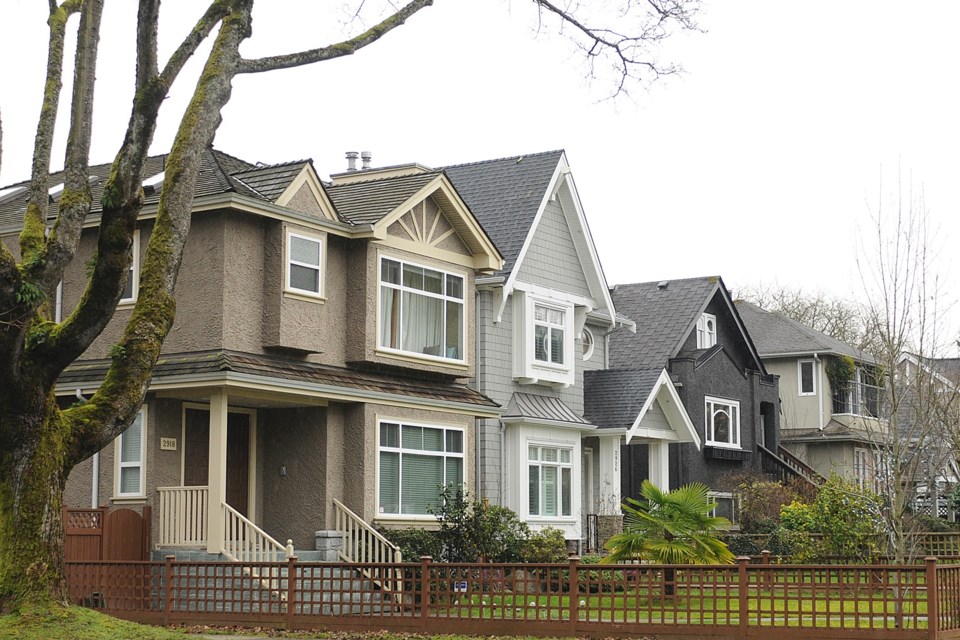In the weeks leading up to last October’s municipal elections in British Columbia, housing was the most ubiquitous issue for voters. There were endless conversations, distinct policy platform positions and a feeling that cities – particularly Â鶹´«Ă˝Ół»â€“ were simply unaffordable for people who wanted to carry on with their lives and their careers.
The issue of “supply and demand” provided plenty of fodder on social media, but the public soon realized that dealing with housing affordability is more complex than making a promise. It requires several government levels and, from a strictly political standpoint, an emotional connection with voters to outline whether things are on the right track.
Late last month, Research Co. asked Metro Vancouverites about three simple issues: should we build more or fewer housing units, should we have more or fewer new housing units devoted exclusively to rentals and has the time come for Canada to consider the possibility of banning non-citizens from buying real estate in the country?
The views of residents varied greatly on all three topics.
When Metro Vancouverites were told that 75,000 new housing units were built in the region from 2015 to 2017, one-third of respondents (34%) said they believe we should build more than we did over this three-year period.
Just over a quarter of Metro Vancouverites (27%) surveyed believe we should build at roughly the same pace as we did over the three-year period, while one in five (19%) wants to build less. This so-called “anti-density” crowd amounts to almost half of Metro Vancouverites surveyed, creating a conundrum for policy-makers and councils who may have promised to simply build their way out of the housing crisis.
There are some slight regional differences. A higher proportion of city of Â鶹´«Ă˝Ół»residents (38%) support a “build more” strategy than of those who live in the city of Surrey (33%) and other Lower Mainland municipalities (32%).
It must be acknowledged that approximately 23% of the 75,000 housing units built from 2015 to 2017 were exclusively for rentals. When we asked Metro Vancouverites how much of whatever new is built should be allocated for rentals, we got a little bit closer to a consensus.
Three in five Metro Vancouverites (61%) surveyed believe we should build more rental units than what was allotted from 2015 to 2017. Majorities of respondents of both genders and all age groups – as well as renters and owners – agree with this course of action. In fact, only one in 20 Metro Vancouverites (5%) would prefer to assign fewer new units to rentals.
But, as has been the case for years, the favourite target of residents who are upset with the housing status quo is non-Canadians. The survey reminded respondents about the situation in New Zealand, where legislation was recently passed to ban most foreigners from buying real estate in the country.
The New Zealand law contemplates exceptions for foreigners who hold residency status in New Zealand, as well as citizens from Australia and Singapore, due to free-trade agreements. Almost four in five Metro Vancouverites (77%) supported enacting similar legislation in Canada. This is consistent with the high level of endorsement that the foreign-buyer tax – in all of its forms – has garnered over the past few years.
Housing will undoubtedly continue to dominate the agenda at the municipal level for the next four years. The way in which residents are reacting to specific issues related to solving the crisis is dissimilar.
There is huge support for a ban on foreign ownership of real estate, which can be partly attributed to recent media coverage of people who profited from decidedly advantageous situations that are unreachable for residents. A drastic change on this file, however, is in the hands of the federal government.
Adding more units to the rental stock appears to be a popular argument and an idea that has broader support among residents aged 55 and over. They may either be thinking of downsizing or know someone who is considering leaving a city because of housing costs.
However, when it comes to “supply and demand,” there is no definitive answer. Millennials want to get into the market and are more likely to call for more construction, whereas almost half of generation Xers and a majority of baby boomers surveyed would keep the same pace or reduce it. Those who are already in the real estate market appear to be primarily concerned about the look and feel of their neighbourhood – at least for now. •
Mario Canseco is the president of Research Co.



